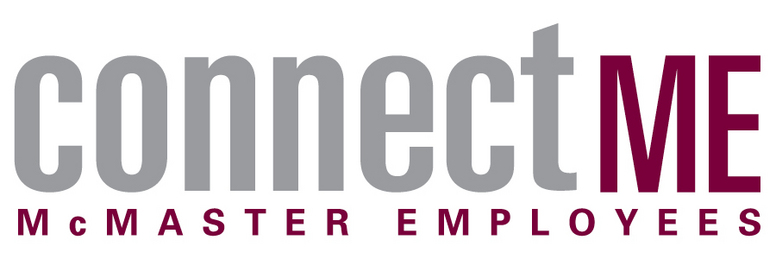Overview
Mental illness affects everyone sooner or later – one in five people will experience a mental illness directly. Those of us who do not have a mental health concern ourselves, will have a friend, colleague, or family member who is dealing with a mental health issue.
A psychologically healthy work environment supports employee engagement, worker health and well-being, recruitment and retention, productivity, effective risk management and corporate social responsibility. The supports provided at McMaster aim to foster mental wellness in you and those you know.
Information Box Group
Related Events

Mastering the Balancing Act: Effective Workload Management for Managers
Employee Well-Being, Learning & Development
Aug 8, 2024
9:00AM to 10:00AM

Building Healthy Boundaries
Employee Well-Being, Learning & Development
Aug 13, 2024
11:00AM to 12:00PM
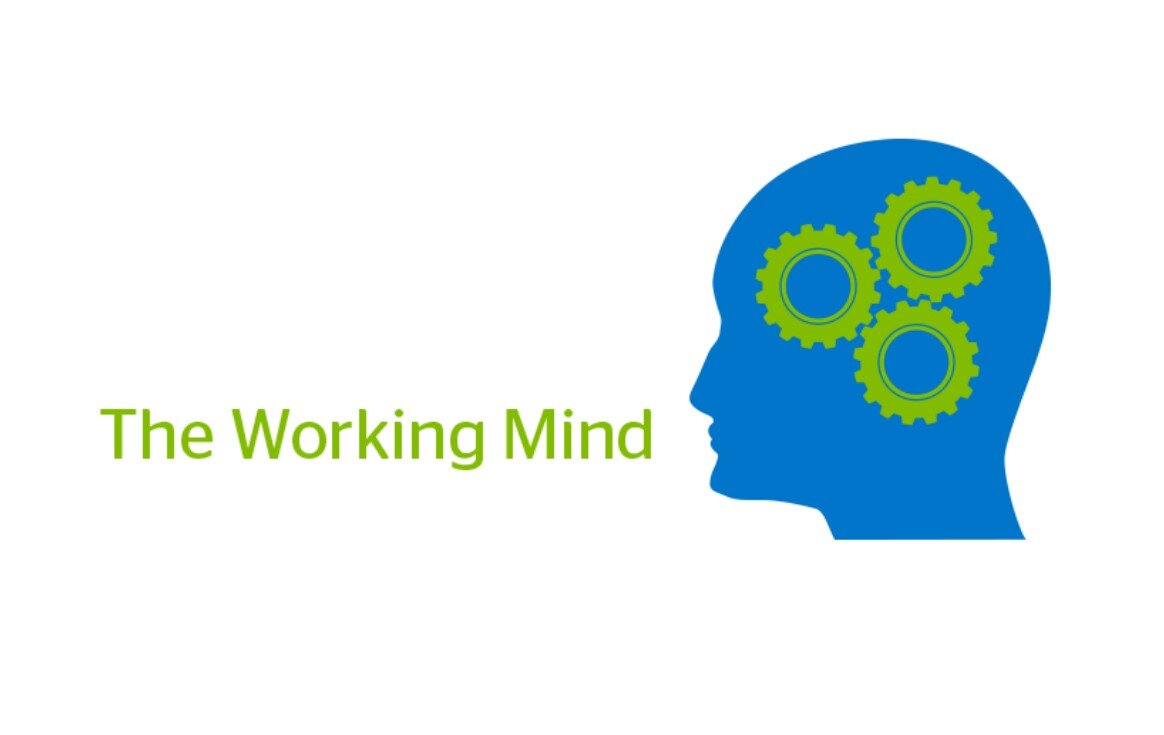
The Working Mind Mental Health Training for Employees - WAITING LIST
Employee Well-Being, Mental Health, TWM Training
Aug 22, 2024
9:30AM to 4:00PM
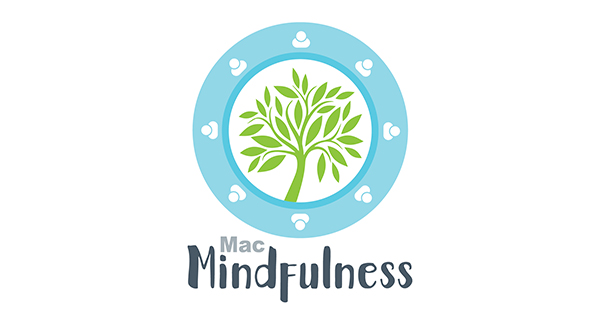
Breathe Among the Trees: A Mindfulness & Nature Session
Employee Well-Being, Mental Health, Well-being Training
Sep 6, 2024
12:00PM to 1:00PM

The Working Mind Mental Health Training for Employees
Employee Well-Being, Mental Health, TWM Training
Sep 10, 2024
9:30AM to 4:00PM

The Working Mind Mental Health Training for People Leaders
Employee Well-Being, Mental Health, TWM Training
Sep 11, 2024 to Sep 12, 2024
10:00AM to 3:30PM

The Working Mind Mental Health Training for People Leaders
Employee Well-Being, Mental Health, TWM Training
Oct 1, 2024 to Oct 2, 2024
10:00AM to 3:30PM

The Working Mind Mental Health Training for Employees
Employee Well-Being, Mental Health, TWM Training
Oct 30, 2024
9:30AM to 4:00PM

November 3-Part Planning for Retirement Course
Employee Well-Being, Retirement Planning
Nov 7, 2024 to Nov 21, 2024
10:00AM to 12:00PM

Psychological Health & Safety
At McMaster University, we are committed to enabling a work culture that is healthy, safe, inclusive, collaborative, engaging and allows every employee to thrive, while continuing to provide exceptional contributions, service and supports to the teaching, research and institutional mission of the University.
- Human Resources
- Employees
- Health, Safety & Well-Being
- My Health
- Mental Health Resources and Training
Psychological Health & Safety
At McMaster, we recognize the importance of establishing and fostering a psychologically safe, inclusive, and accessible university which promotes and supports the mental health and well-being of every student, staff and faculty member in all of its activities and creates the conditions for all to flourish. McMaster University is committed to being a psychologically healthy and safe workplace. A psychologically safe workplace has been defined by Amy Edmondson as “a belief that no one will be punished or humiliated for speaking up with ideas, questions, concerns, or mistakes, and that the team is safe for interpersonal risk-taking”.
The material provided on this website will help employees and managers understand how to foster a psychologically safe environment, where employees can ask questions, voice concerns, acknowledge mistakes, and present ideas without fear of embarrassment, rejection or punishment. Numerous studies have shown that the presence of psychological safety amongst a team creates a stronger sense of belonging, boosts employee engagement, and drives creativity, innovation and team efficiency. This leads to improvements in communication and collaboration, the ability to recruit and retain talent, better processes, and a reduction in health & safety issues and absenteeism.
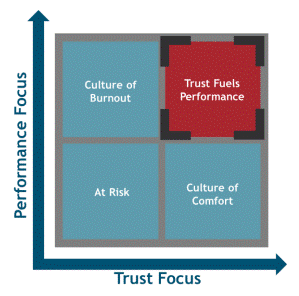
CULTURE OF TRUST SPECTRUM
To help leaders understand how much performance is fueled by trust, Great Place to Work has developed a Spectrum to assess primary types of culture for your team.
Information Box Group
Culture of Trust More
In this work environment, trust fuels performance and leads to sustainable benefits for the team.
What you'll see with a culture of trust
- Employees and leaders are united in their performance focus and have a healthy two-way communication.
- Risk taking is encouraged and mistakes are treated as opportunities to learn and grow.
- Employees often go above and beyond.
- Top talent is easy to attract and retain.
Culture of Comfort More
Employees and leaders consider one another friends and family and many employees have been with the company for a long time.
What you'll see with a culture of comfort
- Leaders will take time to get to know employees and there is a sense of openness and trust.
- Leaders place a high value on trust but company performance is low.
- Strategy, external competition and business growth are low on the priority list.
- There are risks to layoffs or major losses by living off of past successes and lack of business discipline.
- Career-minded talent are turned off by performance, which perpetuates a low performance cycle.
What you'll see with a culture at risk
- It is difficult to recruit and retain talent and considerable time, resources and budget are spent recruiting, on-boarding and training new employees.
- Leaders are disinterested in building trust with employees, or new leaders are unable to build trust due to previous conditions.
- Employees fear making mistakes, which has led to a lack of collaboration, innovation and agility.
- Low performance has put the organization at risk.
Culture of Burnout More
In this environment, performance is greatly valued, but trust is not seen as essential to success.
Culture of Burnout - More
- Employees will be motivated by fear and internal competition which perpetuates mistrust among peers and lack of collaboration.
- Only individual high performers receive rewards and recognition.
- Employees lack a career path and opportunities for professional development. High potential talent seeks opportunities elsewhere.
- Employees’ personal needs are ignored.
- It is difficult to recruit and retain talent and considerable time, resources and budget are spent recruiting, on-boarding and training new employees.
9 TIPS TO CREATE PSYCHOLOGICALLY SAFE AND TRUSTING WORK ENVIRONMENTS
Think of conflict as an opportunity, not a burden
- When conflict is seen as adversarial, employees will stop offering ideas or leave the organization.
- Instead, encourage your team to explore conflict in a healthy way and ensure they will not be punished for articulating their ideas and opinions.
Avoid blame at all costs
- Instead of focusing on the problem, explore solutions.
- Replace blame with curiosity and a forward-thinking desire to learn. Prompt your team with “let’s uncover solutions to workload together”.
- Be sure to encourage problem-solving across your team and let them know how you can support them.
Focus on the results, not the clock
- Cultivate a work culture that clearly values the quality of work done, not simply the quantity.
- Check in with team members regularly, especially if you can see a team member is struggling.
- Be careful about privacy and autonomy so team members don’t feel micro-managed, even when you don’t mean to.
- Ensure team members are aware of break entitlements, the Disconnect from Work Policy, and insist they take time away from work to recuperate.
- Consider Flexible Work options to support work-life balance.
- Note, however, it is helpful to understand WHAT your team is spending their time on – so you can understand if more time is being spent on activities than reasonable. This will allow you to readjust workload or offer coaching, when necessary.
Genuinely listen to ideas
- When employees feel their ideas are heard, psychological safety is strengthened, and employees are more likely to offer new ideas.
- Ask probing questions to encourage new ideas about how things can be done differently.
- Listen carefully to positive and negative feedback and judge them equally without blame, accusations, or defensiveness.
- Canvass your team for solutions to a problem before presenting your own. This will encourage contributions from your team and avoid confirmation bias.
Encourage coaching before there are problems
- Use positive coaching (see GROW model) to build trust and keep work flowing.
- Research shows authentic leadership can boost trust, engagement and performance.
Discourage micromanagement
- Micromanagement causes employees to worry about making mistakes and disrupts productivity while they wait for approval.
- Instead, track team progress weekly and provide coaching to help them improve and feel engaged.
Protect your employees
- Review and monitor your team’s contributions to help you identify potential exhaustion and burnout before it happens. Rearrange work assignments to prevent excessive demands on workers.
- Treat team members with compassion, care and empathy. This ensures greater productivity and enhances trust among team members.
- Protect team members from harassment, blame, drama, and other forms of abuse. Having to avoid conflict instead of actually working will harm productivity and trust.
- Ensure necessary equipment and supports are available to help complete work competently and efficiently.
- Acknowledge and appreciate employees’ efforts during times of high work demand.
Plan work carefully and agree on achievable deadlines or work pace
- Ensure systems are in place to cover staffing shortages (e.g., due to vacation, sick leave, unfilled positions).
- Create an inclusive culture which encourages everyone to participate by utilizing individual strengths.
- When employees feel safe and welcome and their skills are making a positive impact on team success, performance can improve up to 30%.
Break down barriers of remote work
- It’s difficult to create environments of psychological trust and safety when there are limited face-to-face meetings.
- Encourage non-work discussion spaces (using Teams or other tools), organize opportunities to meet in person where possible, and use video and audio recordings to share team contributions.
- Hold regular on-site meetings with intent. Have a clear agenda for the time spent together, take time to have icebreakers to help your team to get to know one another better. Canvass team members to present on a regular topic of their choosing.
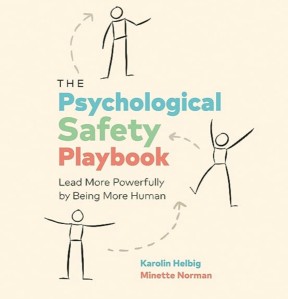
More Strategies to Create Psychologically Safe Teams
The book “The Psychological Safety Playbook: Lead More Powerfully by Being More Human”, written by Karolin Helbig and Minette Norman, breaks down 5 key concepts for establishing a psychologically safe environment within your teams, and provides tangible tips within each concept for you to take action. If you’re interested in learning more about doing this, it’s strongly recommended that you read the book, but we’ve provided the summaries of each of their concepts here to help you get started:
Information Box Group
Play 1 – Communicate Courageously - Learn More
- Welcome other viewpoints: When you admit you don’t have all the answers and you’re open to other perspectives, you create an environment where everyone’s viewpoint is welcome and valued
- Solicit diverse perspectives: When you invite healthy dissent from your team, you ensure that diverse perspectives will be heard, resulting in better outcomes.
- Open up: When you authentically share your emotions with others, you engender a sense of trust and humanity in yourself as a leader.
- Take off the mask of perfection: When you openly ask for help and admit what you don’t know as a leader, you create conditions for continuous learning and improvement.
- Nurture a sense of humour at work: When you lead with a sense of humour, you foster engagement and motivation, making it possible for people to contribute their best.
Play 2 – Master the Art of Listening - Learn More
- Listen to understand: Understanding is a matter of attitude. Get curious about other people’s viewpoints and be aware that we all have different perspectives and blind spots.
- Be fully present: When you make a conscious choice to continuously refocus your attention on the person you are listening to, you become fully part of that conversation.
- Clarify your understanding: When you ask questions and make sure you get the other person’s point, it makes them feel heard and helps to create an atmosphere of openness and appreciation.
- Listen for emotions: When you identify and acknowledge the emotions behind the words, you can address what makes conversations difficult and become more adept at resolving conflicts.
- Commit to curiosity: When you listen with genuine curiosity, you help elicit more complete thoughts and foster deeper connection. Three words are enough: “Tell me more.”
Play 3 – Manage Your Reactions - Learn More
- Model non-defensive reactions: How you react as a leader in situations where you feel defensive can promote or damage psychological health and safety.
- Respond productively: By labeling your emotions, you gain self-awareness and take back control of how to respond.
- Watch out for your blind spots: When you realize that your brain has blind spots, it helps you see that your story may not be the truth and invites more openness to other perspectives and experiences.
- Appreciate being challenged: Making a U-turn from the fight-flight-freeze response to an appreciative response encourages everyone to speak up.
- Build on others’ ideas: When you cultivate a “yes, and” culture in which all ideas are welcomed, you create the conditions for creativity and innovation.
Play 4 – Embrace Risk and Failure - Learn More
- Normalize failures: When you make it explicit that you expect failure, you accelerate learning and – ultimately – success.
- Reframe failures as learning opportunities: When you start to see failures as learning opportunities, you effectively reduce your fear of failure.
- Get comfortable with discomfort: Learning to be with your difficult emotions is key to gaining more resilience and freedom and to making others feel psychologically safe.
- Model learner behaviour: Modeling learner behaviour is a great way to create psychological health and safety. Try to extract the learning value from your own mistakes and share those lessons with your team.
- Celebrate continuous learning: When you make blameless postmortems a regular habit, you can turn learning into processes.
Play 5 – Design Inclusive Rituals - Learn More
- Upgrade meetings: Meetings are not inclusive by default. When you appoint an Inclusion Booster, you make it safe for all voices to be heard.
- Respect all voices: When you establish and model a no-interruption policy, you build the foundation for a safe, inclusive culture where all voices are heard and respected.
- Take turns: To ensure that everyone’s voice is weighted equally, you can implement a simple turn-taking rule where each person speaks for the same amount of time, without interruption.
- Check for psychological safety: When you make a habit of evaluating your team members’ safety after every meeting, you foster an environment of safety and efficiency.
- Appreciate the team: To create a safe and inclusive working environment as a leader, show appreciation for everyone, including those who challenge you, take risks, and learn from their mistakes.
LEARNING OPPORTUNITIES

Resources for Psychological Health & Safety Learn More
Read, watch and learn more about psychological health and safety by reviewing these curated resources.
Resources for Psychological Health & Safety
Resources to Read
- Discover the peer reviewed research to show how psychosocial factors can support workplaces.
- These actions and resources from Workplace Strategies for Mental Health will improve psychological security and safety.
- This article from People Equation reviews the key points of psychological safety and clarifies what it is not.
- A collection of article, books, videos and courses on psychological safety featuring Amy Edmondson from Harvard Business School.
- Consider psychological safety right from the start by adopting psychologically safe orientation strategies.
- Conduct a self-assessment on your leadership strategies to better understand the impact you have on employees.
- Understand the strengths and opportunities for psychological safety in your team with this Psychologically Safe Team Assessment.
Resources to Watch
- A collection of article, books, videos and courses on psychological safety featuring Amy Edmondson from Harvard Business School.
- This video by Chad Littlefield shows you how to build a culture of psychological safety with 3 ideas and 2 exercises.
- Watch this video by Simon Sinek on creating a trusting team and safe environment in which people can work their natural best.
- This TEDxMcMaster video by Dr. Rafael Chiuzi discusses how fostering psychological safety creates better environments.
Resources to Support Your Learning
- This LinkedIn Learning course by Amy Edmondson from Harvard Business School can help you recognize and promote psychological safety, clearing the big blocks to innovation, connection and collaboration.
- Being a Mindful Employee: An Orientation to Psychological Health and Safety in the Workplace is a free online training program to help employees understand Psychological Health and Safety and how we can support ourselves and others in the workplace
- Psychological health and Safety Awareness is a free 20-minute online training program offered by the Canadian Centre for Occupational Health and Safety, and provides an introduction to workplace mental health, psychosocial factors, and the role employees play in promoting mental health at work.
Upcoming Workshops and Sessions
Questions? Contact:
Information Box Group
RECOGNIZE the signs More Information and Video
Having a framework for recognition of distress, and how to respond helps provide support when talking to colleagues about concerns.
Recognize the Signs
Recognizing distress and responding in a respectful and supportive manner promotes early intervention and recovery.
Using a person’s historic standard of behaviour:
- it is most important to recognize when there is a change in behaviour or emotional response (either positive or negative);
- if the change is serious in nature – meaning you are concerned about the individual’s safety or the safety of those around, or
- if the change is extended (longer than 1 – 2 weeks) or when behaviour begins to negatively affect work, relationships or normal daily activities.
Reflect on any visible changes in behaviour that might be uncharacteristic:
- What have I seen?
- What have I heard from the individual?
- How long have I noticed these behaviours?
RESPOND with respect & concern More Information and Video
Reaching out to a colleague shows care and concern, and opens a dialogue to check how they are doing.
Respond with Respect and Care
Think about the best way to approach your colleague about your concerns.
- Am I the right person to have this conversation?
- Have I chosen a discrete and appropriate time and environment for this conversation?
- Do I need support or time to prepare?
Here are some examples of wording you could use to help start a conversation:
“You mentioned… [review the issue that was mentioned]… Would you like to talk about it?”
“I’m concerned about you… [issue or behaviour change]… I’m here if you would like to talk, and there are other resources available to you at McMaster…”
Remember it is okay if someone does not want to talk – you can let them know that you are available if they change their mind and leave the door open for discussion at another time.
REFER to appropriate resources More Information and Video
It’s okay to be uncertain about how to respond. You don’t need to have all the answers.
REFER to Appropriate Resources
Being there to support your colleagues is often the most valuable thing that you can do.
Remember referring is not counselling and making a referral for the right help is important.
Here’s an example of some wording you could use to provide a referral:
“I want to ensure you get the support you are looking for. Here are some materials/phone numbers/resources…”
Referrals can include:
- Employee and Family Assistance Program (EFAP) – Homewood Health
- Contacts for Crisis Support
Information Box Group
Emergency
If at any time it is believed that the health or safety of members of the McMaster community is at risk, the appropriate authority or University office must be informed. Any reference to ending one’s life, suicide or threat of violence must be taken seriously.
What this might look like:
- Evidence of harm to self or expressed intent to harm self or others
- Signs of substance overdose or drug reaction
- Behaving in a threatening or violent manner
- Erratic behaviour and/or illogical or incoherent speech
- Obvious lack of care for self
How to refer:
For emergencies at the central campus: contact McMaster Security Services
- Dial Extension 88 from any campus phone
- Dial 905-522-4135 from a non-campus phone
For emergencies at other campuses:
Hamilton Health Sciences: Dial extension 5555
St. Joseph’s Hospital: Dial extension 7777
Off-site locations: Dial 911
Employee and Family Assistance Program (EFAP) – Telus Health:
Dial 1-833-366-4544, visit us online at login.lifeworks.com or download the mobile app.
Suicide Crisis Line: Dial 1-855-294-HOPE (4673)
| “I am very concerned about your immediate safety. We will need to get some additional help” |
While you wait for support – you can continue the conversation. Always be empathetic and non-judgmental. Never try to physically stop someone from leaving. You should remain with the individual if possible or note where they go. Be conscious of safety at all times.
Distress
Distinguishing between signs of distress and emergency signs and symptoms can be difficult. Signs of distress still need to be followed up appropriately, but do not always require an emergency call.
What this might look like:
- No plan or signs of risk of harm to self or others
- Distressing life event
- Feelings of stress and/or anxiety
- Changes in behaviour effecting ability to function
- Thoughts of hopelessness and/or worthlessness
- Signs of substance misuse or abuse
How to refer:
Employee and Family Assistance Program (EFAP) – Telus Health:
Dial 1-833-366-4544, visit us online at login.lifeworks.com or download the mobile app.
| “You seem to be very upset. I am concerned about you and want to ensure you get some help.” |
| Next Steps: | Based on your role and relationships in the workplace, follow up may look different for each person. Don’t hesitate to share your concerns with a Person in Authority for additional supports. |
| For Individuals: | After you have had a conversation with your colleague, and if you feel that it’s appropriate, ask them if they would be okay with you checking back in with them soon. |
| For Managers and Supervisors: | If you have observed concerning changes in behaviour in an individual you manage/supervise, you have a responsibility to follow up. If you need support when preparing for this conversation, please contact your Employee/Labour Relations or Employee Health Services partner. |
| Taking Care of Yourself: | Supporting someone else through an emergency or difficult situation can be stressful. Do not underestimate the impact this stress can have on your own health and well-being. Please review these resources to support yourself. |
The Working Mind Mental Health Training
| The Working Mind is an evidence-based program designed to promote mental health and reduce stigma around mental illness in the workplace. This training directly supports our shared purpose of promoting and contributing to a healthy and safe community at McMaster University. | 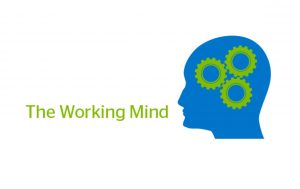 |
The Working Mind (TWM) was developed to initiate a shift in the way you think, act, and feel about mental health.
It was designed to provide practical knowledge and skills to address mental health and mental illness in the workplace. It is intended for employees as well as managers, supervisors and team leads who manage and support teams.
Three Core Modules offer the same foundational content to both employee and people leader participants. They focus on increasing self-awareness and taking care of your own mental health. The Module for people leaders offers leadership-specific content and focuses on helping leaders support their teams’ mental health. People leaders will complete the three core modules and the leader-specific module.
Information Box Group
Module 1: Mental Health & Stigma
Mental Health and Stigma will introduce the participants to the concepts of mental health, mental illness, and stigma and discuss impacts of stigma on individuals living with mental health problems.
Module 2: Mental Health in the Workplace
Mental Health in the Workplace will discuss psychological health and safety in the workplace and introduce participants to the Mental Health Continuum tool, which they can use to do a self-check and discuss mental health with others.
Module 3: Stress & Resilience
Stress & Resilience will discuss the impacts of stress on mental health and introduce participants to the Big 4 coping strategies – simple but proven tools that they can us to deal with stress effectively and remain resilient.
Module 4: Supporting Your Team (People Leaders Only)
Supporting Your Team will build on the first three core modules and introduce people leaders to ways they can support their teams’ mental health using the Ad Hoc Incident Review (AIR) as well as other available resources.
Course Objectives
At the end of this course, participants will be better able to:
- Define basic concepts related to mental health and mental illness
- Recognize the impact of stigma and discuss how to reduce stigma and other barriers to care in the workplace
- Recognize and keep track of changes in your mental health and well-being, and know when to take appropriate actions
- Have conversations about mental health and mental illness with colleagues, friends and family members
- Identify and practice coping strategies to manage stress and remain resilient
- Identify and use available resources to support self and others
Upcoming Courses

The Working Mind Mental Health Training for Employees - WAITING LIST
Employee Well-Being, Mental Health, TWM Training
Aug 22, 2024
9:30AM to 4:00PM

The Working Mind Mental Health Training for Employees
Employee Well-Being, Mental Health, TWM Training
Sep 10, 2024
9:30AM to 4:00PM

The Working Mind Mental Health Training for People Leaders
Employee Well-Being, Mental Health, TWM Training
Sep 11, 2024 to Sep 12, 2024
10:00AM to 3:30PM

The Working Mind Mental Health Training for People Leaders
Employee Well-Being, Mental Health, TWM Training
Oct 1, 2024 to Oct 2, 2024
10:00AM to 3:30PM

The Working Mind Mental Health Training for Employees
Employee Well-Being, Mental Health, TWM Training
Oct 30, 2024
9:30AM to 4:00PM
Cost & Cancellation
In response to recommendations by McMaster’s Mental Health Task Force, this program has been championed, implemented and administered by Human Resources Services. We are grateful for the collaboration and strong support from our valued campus partners, including the financial contribution from the McMaster Okanagan Office of Health & Well-being which helped to fund training for our facilitators.
This program is available at no cost to McMaster staff, faculty and leaders.
Those who cancel their registration within seven calendar days or less of the program start date, or who miss more than 30 minutes of the course and cannot be certified, will have an administrative fee ($100) billed to their department. A minimum number of participants is required for the course to take place and may be rescheduled if there is insufficient attendance.
Contact Us

Employee Well-being
McMaster has a strong commitment to create a brighter and healthier world. In 2017, McMaster joined the Canadian Health Promoting Universities and Colleges Network by signing the Okanagan Charter, which is dedicated to advancing human and societal well-being. McMaster’s Healthy Workplace programs strive to advance the well-being of all faculty and staff through the promotion of year round holistic wellness initiatives, including, but not limited to, physical health, psychological wellness, and work-life balance.

Employee Well-being
McMaster has a strong commitment to create a brighter and healthier world. In 2017, McMaster joined the Canadian Health Promoting Universities and Colleges Network by signing the Okanagan Charter, which is dedicated to advancing human and societal well-being. McMaster’s Healthy Workplace programs strive to advance the well-being of all faculty and staff through the promotion of year round holistic wellness initiatives, including, but not limited to, physical health, psychological wellness, and work-life balance.

Employee Well-being
McMaster has a strong commitment to create a brighter and healthier world. In 2017, McMaster joined the Canadian Health Promoting Universities and Colleges Network by signing the Okanagan Charter, which is dedicated to advancing human and societal well-being. McMaster’s Healthy Workplace programs strive to advance the well-being of all faculty and staff through the promotion of year round holistic wellness initiatives, including, but not limited to, physical health, psychological wellness, and work-life balance.

Employee Well-being
McMaster has a strong commitment to create a brighter and healthier world. In 2017, McMaster joined the Canadian Health Promoting Universities and Colleges Network by signing the Okanagan Charter, which is dedicated to advancing human and societal well-being. McMaster’s Healthy Workplace programs strive to advance the well-being of all faculty and staff through the promotion of year round holistic wellness initiatives, including, but not limited to, physical health, psychological wellness, and work-life balance.
- Human Resources
- Employees
- Health, Safety & Well-Being
- My Health
- Mental Health Resources and Training
Employee Well-being
The Importance of Vacation for Well-being
Vacations provide an opportunity to relax, recover from the demands of work, and spend time with family and friends. This implies that time away from work and daily responsibilities allows individuals to recharge mentally and physically, reducing stress and preventing burnout. Vacations allow you to have time to sleep, relax, and connect with the people and activities that are important to you. Taking a vacation can have numerous benefits for your well-being, both mentally and physically:
Mental Health Benefits
-
Reduced Stress: Vacations help lower stress levels by removing you from the pressures of daily life
-
Improved Mood: Time off can boost your mood and overall outlook on life
-
Enhanced Creativity: A break from routine can unclutter your mind, leading to increased creativity and problem-solving abilities
Physical Health Benefits
-
Stronger Immune System: Relaxation during vacations can help your immune system recover, making you less prone to illnesses
-
Better Sleep: Time away from work can improve both the quantity and quality of your sleep
Overall Well-Being
-
Increased Motivation: Taking time off can rejuvenate your mental energy, making you more motivated and productive when you return
-
Improved Relationships: Vacations provide opportunities to strengthen bonds with family and friends, enhancing relationship satisfaction
-
Greater Life Satisfaction: Time away allows you to reflect on what’s important, leading to a greater sense of fulfillment and purpose
Sources: Telus Health, Havard Business Review, Alina Health, Psychology Today

The Importance of Vacation for Employee Well-being Learn More
Source: McMaster Human Resources Services

Telus Health: Why taking vacation is important for mental health Learn More
Source: Telus Health

How Taking a Vacation Improves Your Well-Being Learn More
Source: Harvard Business Review
National Health Promotion Days in July - Learn More
- National Injury Prevention Day – July 5*
- Glioblastoma Awareness Day – July 17*
- Uterine Fibroid Awareness Day – July 21*
- International Self-Care Day – July 24*
- World Hepatitis Day – July 28*

Heathy Parks Healthy People Day Learn More
The Ontario government is making it easier to explore provincial parks and experience the benefits of spending time in nature by offering free day-use access on Friday, July 19, to mark Healthy Parks Healthy People Day. This annual celebration is part of a global movement to promote the incredible health benefits of getting outside in nature.
Information Box Group
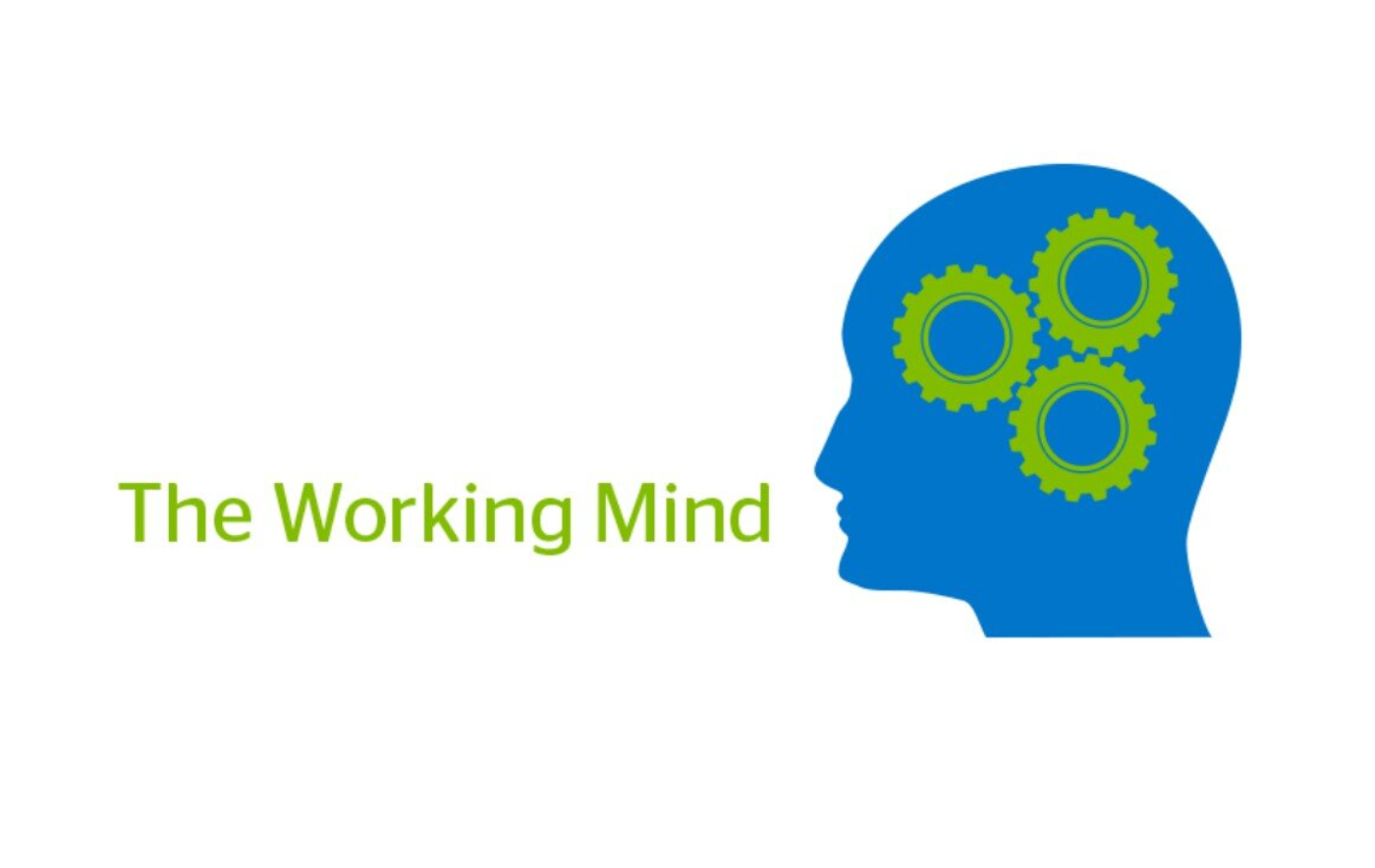
The Working Mind Mental Health Training Learn More
| The Working Mind is an evidence-based program designed to promote mental health and reduce stigma around mental illness in the workplace. This training directly supports our shared purpose of promoting and contributing to a healthy and safe community at McMaster University. |

Professor Hippo on Campus Learn More
The core Professor Hippo-on-Campus program consists of 8 modules that teach staff and faculty at McMaster about student mental health and how to support students in a way that suits their role, whether it be as an academic advisor or as a professor. The program will also teach how to use the Responding to Students in Distress and Difficulty (RSDD) protocol.

Employee Family and Assistance Program Learn More
McMaster University is proud to offer the extended benefit of an Employee and Family Assistance Program (EFAP) with our partner, Telus Health.
Upcoming Employee Well-being Events

Mastering the Balancing Act: Effective Workload Management for Managers
Employee Well-Being, Learning & Development
Aug 8, 2024
9:00AM to 10:00AM

Building Healthy Boundaries
Employee Well-Being, Learning & Development
Aug 13, 2024
11:00AM to 12:00PM

The Working Mind Mental Health Training for Employees - WAITING LIST
Employee Well-Being, Mental Health, TWM Training
Aug 22, 2024
9:30AM to 4:00PM

Breathe Among the Trees: A Mindfulness & Nature Session
Employee Well-Being, Mental Health, Well-being Training
Sep 6, 2024
12:00PM to 1:00PM

The Working Mind Mental Health Training for Employees
Employee Well-Being, Mental Health, TWM Training
Sep 10, 2024
9:30AM to 4:00PM

The Working Mind Mental Health Training for People Leaders
Employee Well-Being, Mental Health, TWM Training
Sep 11, 2024 to Sep 12, 2024
10:00AM to 3:30PM

The Working Mind Mental Health Training for People Leaders
Employee Well-Being, Mental Health, TWM Training
Oct 1, 2024 to Oct 2, 2024
10:00AM to 3:30PM

The Working Mind Mental Health Training for Employees
Employee Well-Being, Mental Health, TWM Training
Oct 30, 2024
9:30AM to 4:00PM

November 3-Part Planning for Retirement Course
Employee Well-Being, Retirement Planning
Nov 7, 2024 to Nov 21, 2024
10:00AM to 12:00PM
Learn More About Your Well-Being


Employee Well-being Contacts
Karli Dillane
Program Coordinator, Workplace Health & Well-being

Karli Dillane
Program Coordinator, Workplace Health & Well-being
Karli Dillane
Program Coordinator, Workplace Health & Well-being
Karli Dillane
Program Coordinator, Workplace Health & Well-being








